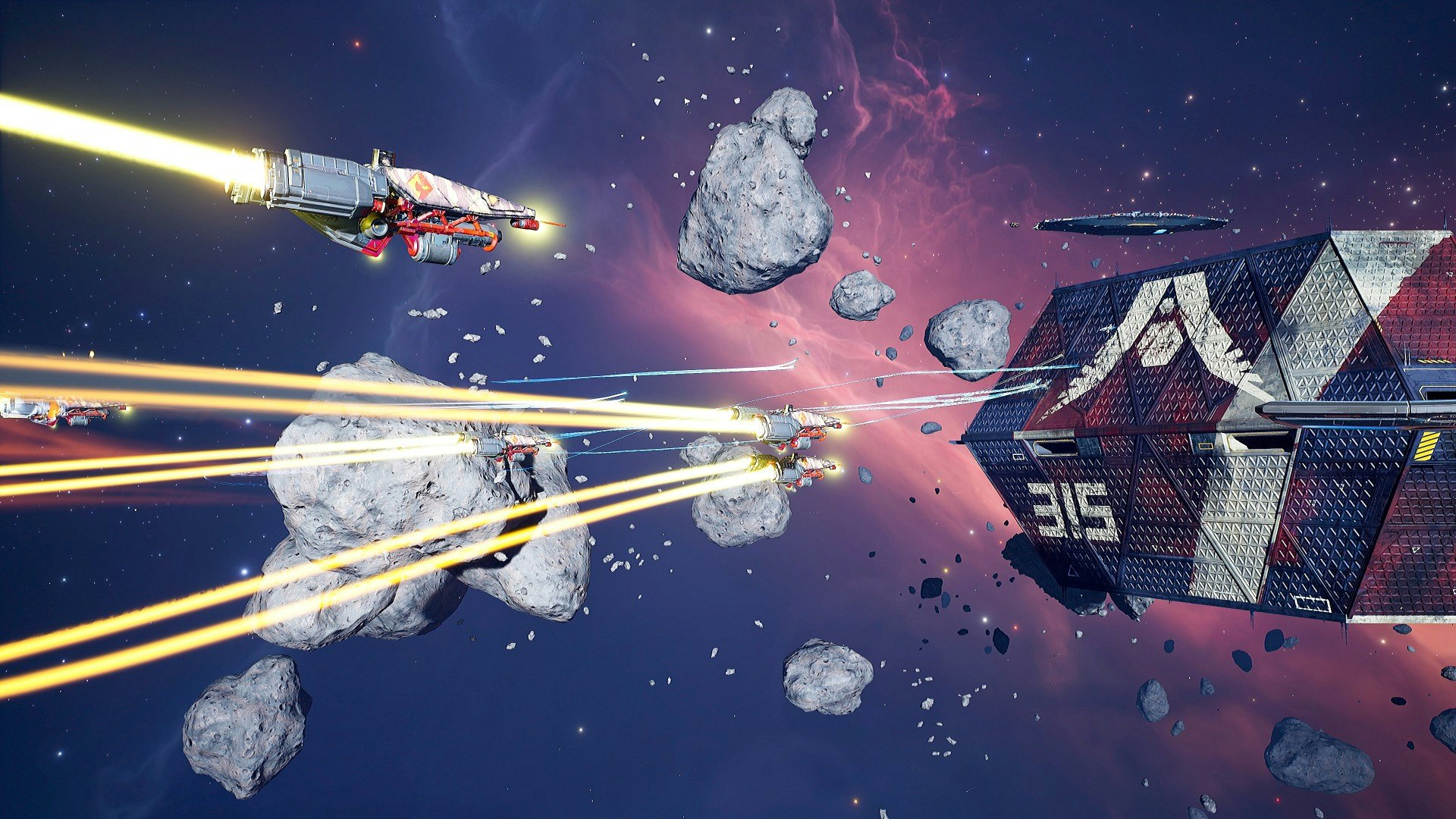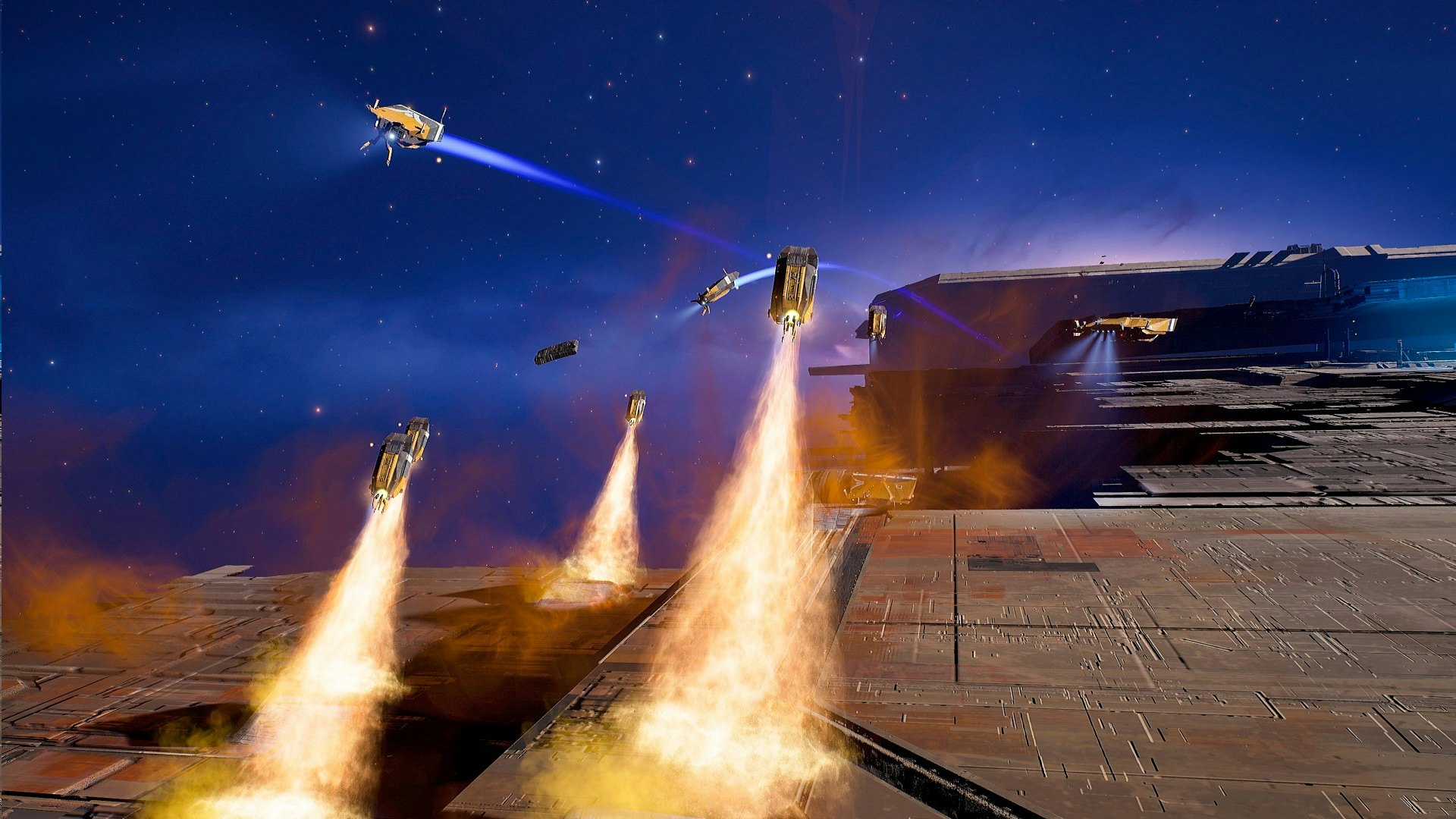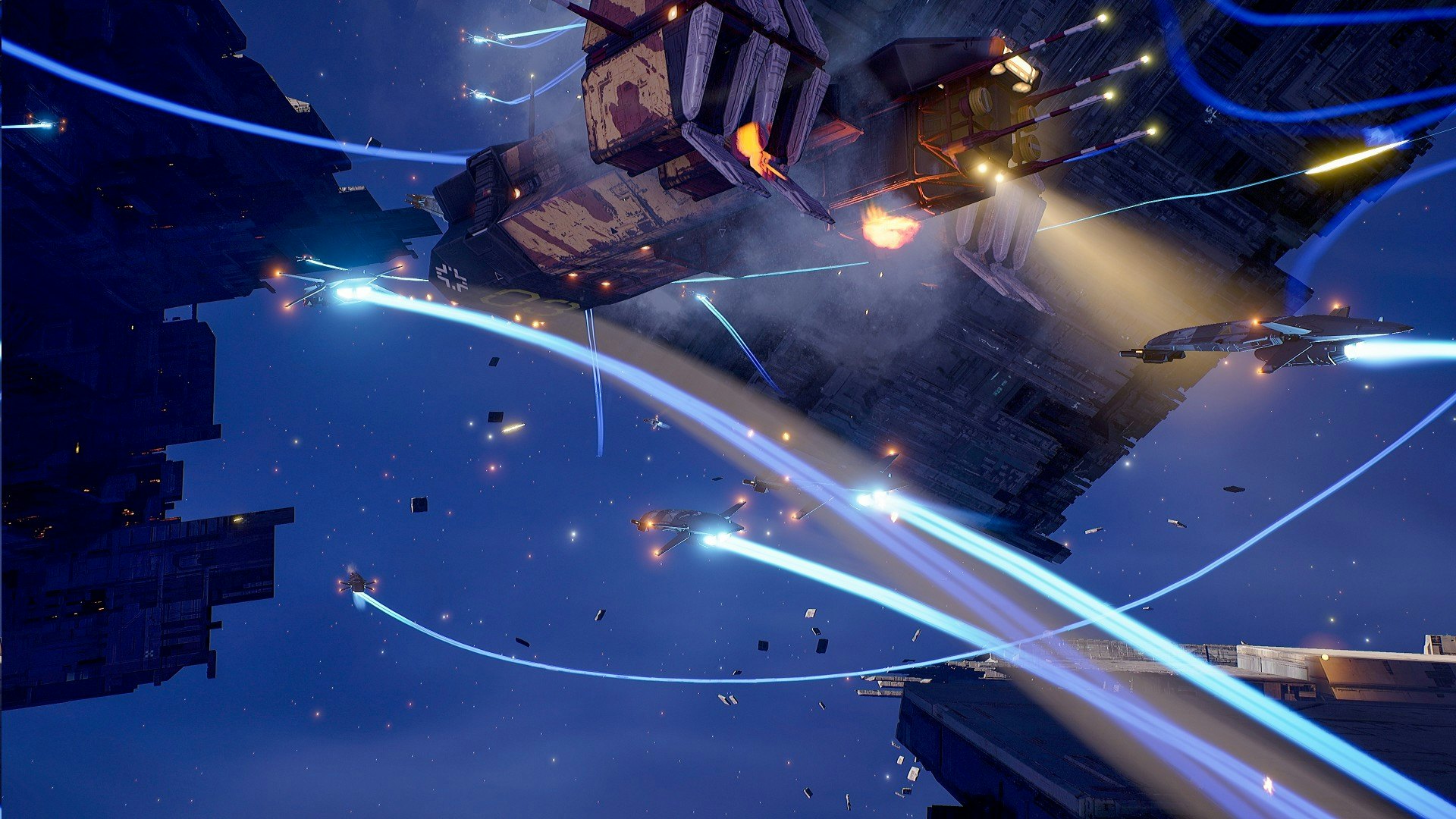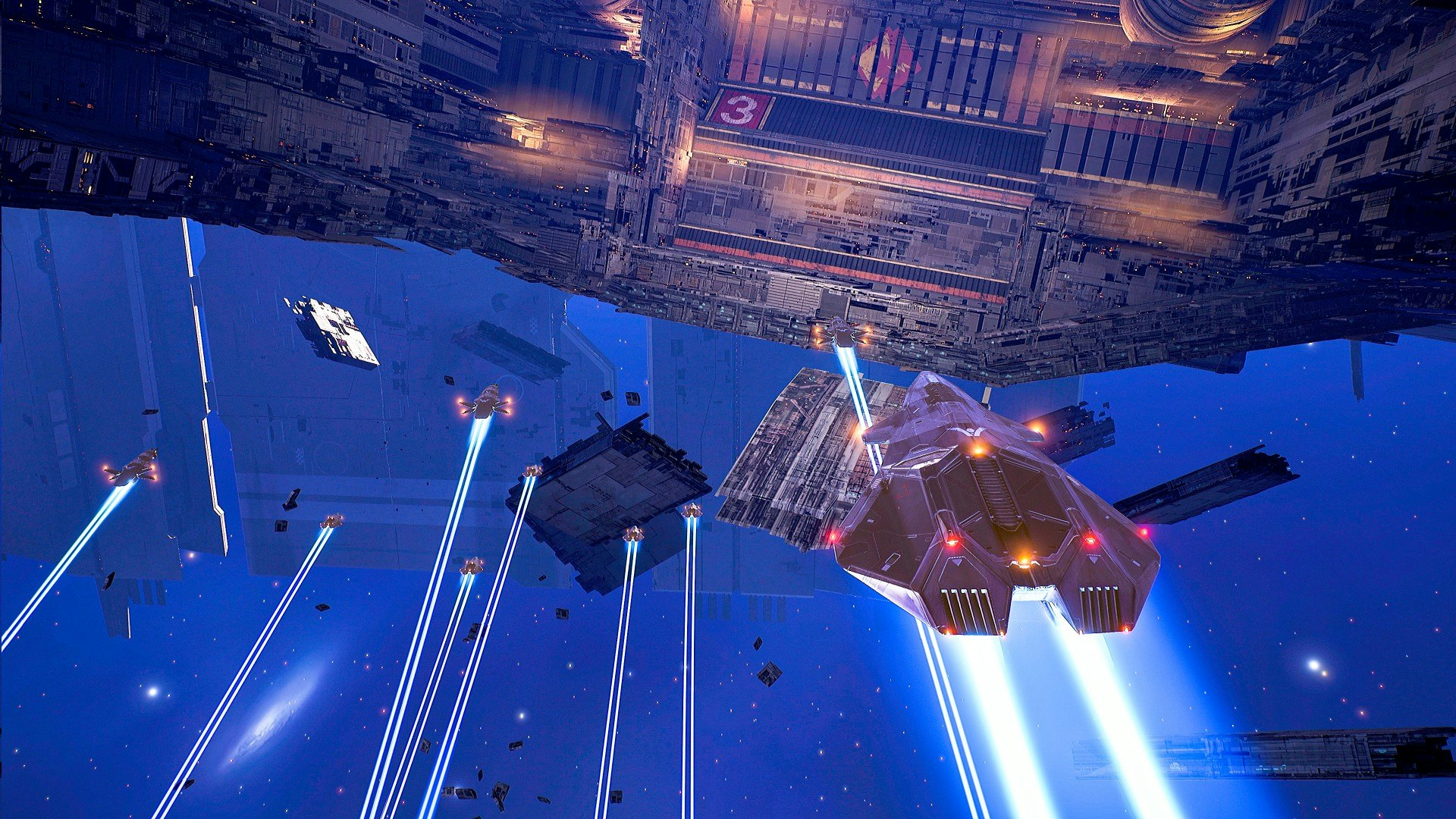
It’s been nearly 20 years since the release of Homeworld 2, and in that time the RTS genre has grown by leaps and bounds with titles like Starcraft 2, Company of Heroes, Sins of a Solar Empire, and much more. Yet for all that time, there’s still nothing that manages to strike the same mood and feeling as Homeworld, and that’s exactly what Blackbird Interactive is hoping to recapture with Homeworld 3. After playing roughly two hours of the game and talking to developers at Blackbird, it’s clear that Homeworld 3 is looking to pay homage to the legendary games that came before it, while also trying to bring a modern spin that can attract new players.
“Oftentimes, when people make a Homeworld-inspired game it ends up feeling like the voice actors are too big, or there's just too much stuff, too much going on. Homeworld is much more subdued and restrained. And that kind of special spectrum where Homeworld sits, I think is very unique to the brand and hasn't been very well replicated,” says chief creative officer Rory McGuire “The secret weapon that we have here is that a lot of the people that have contributed to the original creation of that feeling, are at Blackbird and actively contributing to Homeworld 3.”
My demo consisted of two different missions, a tutorial that taught the basics of gameplay and a later more involved mission that really let me start flexing tactical muscles. The general flow of Homeworld 3 will instantly feel familiar to longtime fans, with a cycle of exploration, resource gathering, and combat, usually tied to some kind of objective. The heart of your fleet is your mothership, a hulking capital ship that has to be defended at all costs, which is also where you produce new ships and conduct research.

The overall look and feel of Homeworld 3 is very reminiscent of past games, just with upgraded visuals. It’s certainly a sight to behold as your fighters and frigates glide through space littered with debris and wreckage. Past Homeworld games struck an almost somber tone through their visuals and soundtrack, and the two hours of Homeworld 3 I played hit a lot of those same notes. There’s a sense of wonder and discovery that it looks like the game might recapture, at least based on my early impressions.
If you’ve played past games you should pick up the basics immediately, but for new players, there are a few slight changes to make the game easier to get into. The camera controls are totally customizable, letting you control everything from a kind of first-person moving through space approach or using your standard RTS controls. Playing through the tutorial mission it really struck me how Homeworld 3 almost feels like an extension of Homeworld 2, but with an upgraded aesthetic and smoother controls.
“We love the community, and we want to make sure that they're getting a truly Homeworld game,” says associate game director Kathryn Neale “With that said, it is quite complex for a player who hasn't dug into it before, and we want to make this more open and accessible. We've been doing that through the different control schemes, and through being able to use terrain as a part of being able to interact with the environment and move around the space.”

As revealed at Gamescom, terrain and cover are the biggest new additions to Homeworld 3, and it provides a wealth of new combat options. The second mission is where I got a true introduction to this new cover system, tasking my fleet with capturing four different locks to open a hyperspace gate. Partway through this mission, my fleet was ambushed by pirates using missile frigates, and I’d need to destroy them to capture the next lock.
At this point, I had three options available tactically. I could charge straight in and just accept the losses my fleet took, or I could use the lingering debris as cover to try and dodge the missiles. With a bit of exploration, I also found a tunnel going underneath the structure that I could use to sneak up behind the frigates for a surprise attack. I chose a combination of the latter two. The cover system in Homeworld 3 is fascinating and really feels like it adds an additional layer to the strategy.
Suddenly you’re looking at the environment where battles take place, and not just issuing orders to your ships. While you can manually order units into cover, your ships also do a good job of automatically diving into cover as they circle around enemies. McGuire notes that the team at Blackbird looked at tank combat in World War II for reference on how the cover system should work, looking at how hulking tanks would use roads and buildings for cover.
“The biggest thing in terms of complexity was really about ensuring that the ship behaviors really helped to support the strategy of engaging with terrain,” says Neale “We were really focused on making sure that the ships were reacting in really interesting and immersive ways to the terrain as you guide them around the world.”

Blackbird notes that the second mission I played is only about 15 percent into the campaign, and the cover system there really only serves as an introduction, and there are other features the team has planned that they can’t talk about yet. Neale describes things like the cover system and ballistics simulation as “tools” for the player to use, akin to other strategies in the game. “The original Homeworld series was very focused on sort of hard counters and really pushing the rules. This provides an additional way through which you can sort of soft counter or you know, it's a little bit more nuanced in the strategy when it comes to different units and new goals, which creates a lot of options for the players, no matter what the mood is,” says Neale.
Although I only scratched the surface of what Homeworld 3 has to offer, it’s clear to see that Blackbird is fully committed to creating a game that feels uniquely “Homeworld.” The cover system is a big new idea that truly feels like it brings something new to the franchise, and if that’s any indication of the larger experience, I’m excited to see more.
Homeworld 3 is currently in development for PC.







